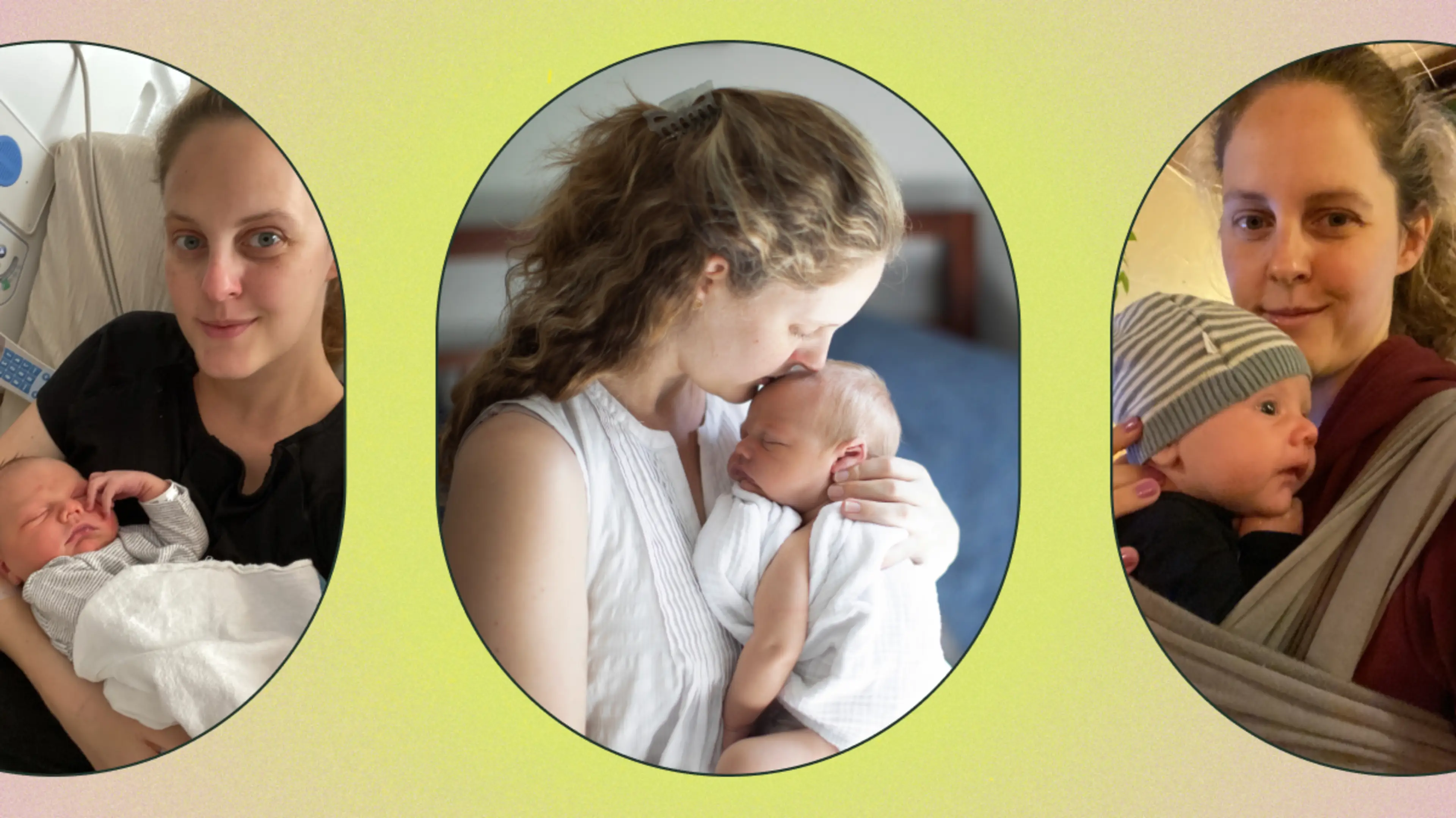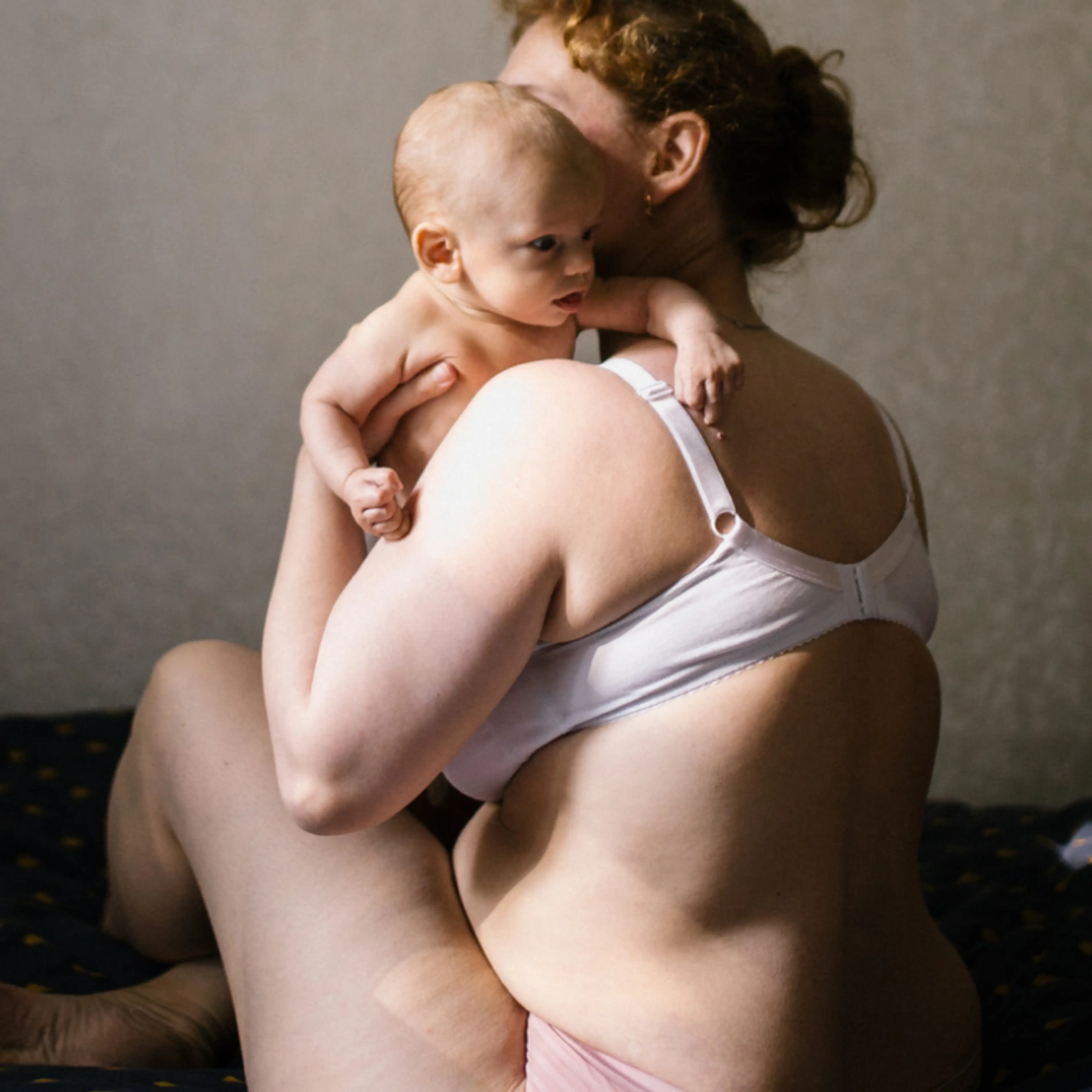Postpartum depression (PPD) has been a serious issue since about the time people started giving birth (or at least since Hippocrates was writing about it 1 in 460 B.C.). Yet, medical developments to address this issue that affects one in seven women 2 have been seriously lacking…until recently.
Last year, the big news was the arrival of Zurzuvae, the first FDA-approved pill to treat PPD. This year, new research has us talking about ketamine as a potential treatment that may be a faster, more effective option for preventing and responding to PPD for people who experience perinatal depression. The study, published in BMJ, found that administering one low-dose injection of esketamine3 immediately after giving birth significantly reduced the number of major depressive episodes up to 42 days after giving birth.
There are a few important things to note about this study. First, it was relatively small. Second, the study was conducted in China, so there are some slight nuances in the type of ketamine used and its availability in the U.S.
There are two types of ketamine treatments in the U.S. One is ketamine infusion therapy which involves a specific type of the drug called R,S-ketamine and is used in ketamine clinics or via online ketamine-assisted therapy. The other, esketamine (Spravato), is a nasal spray that is FDA-approved for treatment-resistant depression and depression that involves suicide risk. In the U.S., esketamine is patented and not available in the same form that was used in the study. Neither are approved for the treatment of postpartum depression, but they can be used off-label by doctors.
While this study sounds good in theory—really good given that it reduced risk by a full 75%—we talked with Dr. Jared Ross, an emergency medicine and alternative psychiatry specialist, to understand whether this opens the door for more women to try ketamine therapy to prevent postpartum depression, exactly how this treatment works, and whether there are still barriers to overcome.
And as a reminder, you should also talk with your doctor about the potential risks and side effects of using ketamine for postpartum depression. This is a very early study that requires more research, and it is just one emerging piece in the complex treatment landscape for PPD.
Expectful: What was note-worthy about this study?
Dr. Ross: It's an interesting study because it's really looking at treating women upfront, rather than waiting for women to have postpartum depression. I do a lot of work with ketamine and I’m pretty up on the ketamine literature, and I'm not aware of any other research looking at ketamine prophylaxis [or prevention] for depression. So that's a very interesting idea.
But I also think the doctors probably knew who was getting the esketamine. Our best study is a randomized, double-blind, placebo-controlled study. But there are some things that are not able to be studied that way, for ethical reasons or for structural reasons.
Yes, in this study, the physicians and the patients were blinded, but it’s a psychoactive medication, so a patient's going to know they're getting it and that the physician is going to pick up on a patient who's getting it. Patients definitely know, especially if they've never received ketamine before, and the doctor will see physiological signs, like lots of back-and-forth eye movements that give it away, and that can introduce bias into the study.
Expectful: The study looked at esketamine. How is that different from ketamine?
Dr. Ross: What happened in the U.S. is that ketamine was FDA-approved as an anesthetic in 1970, and was widely used in the Vietnam War because of its safety. And then for a number of complex financial reasons, it fell out of favor in the late 70s and early 80s, and then wasn't really rediscovered until the mid-2000s.
Ketamine was off-patent, so no one really had any interest in doing big clinical studies to get FDA approval to use it to treat depression. While, as physicians, we don't need approval to use medications—it’s called off-label usage and about a quarter of medication usage is off-label—insurance reimbursement for off-label usage tends to be very poor, if at all. So, all of the ketamine usage was off-label, and Johnson and Johnson saw an opportunity to create a nasal spray using S-ketamine, and market this as Spravato. The infusion of ketamine costs about $10 a vial, and a vial can be used to treat five patients with depression, whereas the esketamine spray costs $1,000 per dose.
In Europe, both types have been off-patent for a long time, so they are available in all different bioavailabilities, including the s-ketamine injection that this specific study is looking at. People have actually done studies comparing the two [R,S-ketamine and S-ketamine], and we use them pretty interchangeably.
Expectful: How does ketamine therapy treat depression differently than other medications?
Dr. Ross: Ketamine really works on a different theory of depression. The theory of depression that was built in the 1970s was that the monoamine neurotransmitters, like serotonin and norepinephrine, were in low concentrations in the brain. So, that drove the creation of the monoamine oxidase inhibitors (MAOIs), and then the tricyclic antidepressants, that tried to increase these concentrations.
Then there was a move towards the selective serotonin reuptake inhibitors (SSRIs and SNRIs) that allow more neurotransmitters to be in the synapses. Fifty years later, we actually don’t have any evidence that this hypothesis is a significant player in depression. So, we’ve got half a generation of drugs based on a hypothesis that doesn’t hold water. Plus, these medications take forever to take effect. I mean, we're talking six to eight weeks to start seeing the effects, and probably months before we're seeing peak effects.
Ketamine works on neuroplasticity, which is how we form memories, how we learn, how we relearn building connections in the brain, which seems to have a much more direct pathway to depression and mental health, and also a much more lasting effect after the medication is gone. So, I think it can be incredibly helpful and a much faster onset of relief than most, if not all, of the medications that we have on the market.
Expectful: There are some major hurdles to women in the U.S. accessing the same treatment given in the study as esketamine is only available in the U.S. as a nasal spray, not an injection. Also, the study specifically looked at injectable esketamine given in the hospital right after birth. Those issues aside, how is ketamine available in the U.S. right now?
Dr. Ross: I think ketamine is a viable option for some people, but there are some challenges there. One of them, unfortunately, is reimbursement, because ketamine infusions are off-label, insurance coverage is basically non-existent. So a woman is going to have to pay out of pocket for the treatments. We usually charge $100 to $200 a treatment, but some places charge up to $500 a treatment.
Then, most doctors just aren’t set up for ketamine therapy. So most people are going to ketamine clinics, and ketamine clinics are working on a direct care model, where they are not billing insurance, which is important to keep their overhead down. Now, would a ketamine clinic be willing to treat a postpartum woman? I don’t see why not, but I think people will always have some fears with that. But, I see a lot of these clinics popping up all over the country, and I think they can be a really good resource.
Spravato, or esketamine, is a potential alternative, but it does not have any specific indication for postpartum depression, and I think there is some hesitancy to use it, and insurance would not be likely to approve it, unless the patient has tried other medications for depression that have not worked. So again, it’s incredibly expensive, at $1000 a treatment for the drug wholesale, so you’re looking at something much higher in reality. It’s definitely something to ask your doctor about, but I know a lot of doctors are not comfortable with it just yet.
This interview has been edited and condensed for clarity.












